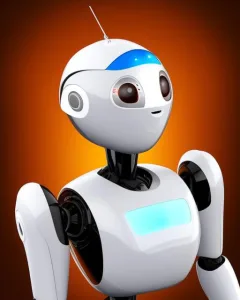Introduction
Artificial Intelligence (AI) is an increasingly pervasive technology that has the potential to revolutionise our world. It refers to the human-like intelligence, judgment, learning, and awareness exhibited by machines, and the branches of computer science and engineering that seek to create intelligent machines. With applications ranging from speech recognition and natural language processing to robotics and generative tools, AI has made its presence felt in various domains. In this article, we explore the impact of AI on society, diving into both utopian and dystopian perspectives while addressing the challenges and ethical concerns it poses.
AI is a broad term that encompasses the development of machines that can perform tasks that would typically require human intelligence. These tasks include problem-solving, understanding natural language, recognising patterns, and learning from experience.
In recent years, AI has emerged as a hot topic, making headlines for its remarkable achievements, such as deep learning, IBM’s Watson, OpenAI’s ChatGPT, and the Internet of Things (IoT). These breakthroughs have demonstrated the potential of AI to transform various industries and reshape society as a whole.
There are many achievements and applications of AI, including:
- Deep learning: A subset of machine learning, deep learning involves training artificial neural networks to process and analyse vast amounts of data, enabling them to recognise patterns and make predictions.
- Watson: IBM’s Watson is a powerful AI system capable of understanding natural language, answering questions, and solving complex problems across various domains, including healthcare, finance, and customer service.
- ChatGPT: OpenAI’s ChatGPT is an advanced language model that can generate human-like text, making it useful for applications like virtual assistants, content creation, and customer support.
- Internet of Things: AI plays a crucial role in the IoT, connecting and analysing data from billions of devices worldwide, enabling smarter homes, cities, and industries.
Despite the numerous benefits, AI also poses challenges and risks, including ethical dilemmas, job losses, social impacts, and potential threats to human autonomy and dignity.
Utopian vision of AI
 The utopian view of AI’s impact on society focuses on the potential for AI to solve pressing global problems, enhance human capabilities, and improve overall well-being.
The utopian view of AI’s impact on society focuses on the potential for AI to solve pressing global problems, enhance human capabilities, and improve overall well-being.
Solving global problems
- Poverty: AI-driven advancements in agriculture, education, and healthcare could contribute to reducing poverty by increasing productivity and creating new opportunities for economic growth.
- Disease: AI can accelerate drug discovery and improve diagnostics, enabling more effective and personalised treatments for various diseases.
- War: AI can potentially be used to predict and prevent conflicts, helping to maintain peace and stability on a global scale.
- Climate change: AI can optimise energy consumption, develop more efficient renewable energy sources, and assist in tracking and mitigating the effects of climate change.
Enhancing human capabilities
- Creativity: AI-powered tools can enhance human creativity by offering new ways to express ideas, generate content, and explore artistic possibilities.
- Productivity: AI can automate routine tasks, freeing up time for humans to focus on more complex and meaningful work.
- Well-being: AI can improve mental and physical well-being by providing personalised recommendations for nutrition, fitness, and mental health.
Dystopian vision of AI
 On the other hand, the dystopian view of AI’s impact on society warns of potential negative consequences, such as creating new problems, undermining human values, rights, and freedoms.
On the other hand, the dystopian view of AI’s impact on society warns of potential negative consequences, such as creating new problems, undermining human values, rights, and freedoms.
Creating new problems
- Inequality: The widespread adoption of AI could exacerbate social and economic inequalities if access to AI technology and its benefits are not evenly distributed.
- Oppression: AI could be used by oppressive regimes to monitor and control their citizens, leading to an erosion of privacy and personal freedoms.
- Conflict: The development of AI-powered autonomous weapons could potentially spark a new arms race, increasing the risk of conflicts.
- Existential risks: Uncontrolled AI development could result in the creation of artificial general intelligence (AGI) capable of outperforming humans in any task, posing an existential threat to humanity.
Undermining human values, rights, and freedoms
AI systems, in their pursuit of efficiency and optimisation, might inadvertently overlook the importance of human values, ethics, and emotions, potentially leading to biased decision-making and the erosion of human rights. The algorithms driving these systems are often designed to find the most effective solutions or patterns, which can sometimes be at odds with the nuances of human behaviour and morality. As a result, these systems might perpetuate or even exacerbate existing biases found in the data they are trained on, making discriminatory or unjust decisions that impact vulnerable and marginalised populations.
Furthermore, the absence of empathy and emotions in AI systems may result in decisions that lack compassion or understanding of the human experience, creating additional barriers to achieving a just and equitable society. To mitigate these risks, it is crucial to incorporate ethical considerations and human-centric values into the design and development of AI systems, ensuring that they remain aligned with the best interests of humanity and respect the fundamental rights of all individuals.
Ethical concerns and challenges
As AI continues to advance, it is essential to address various ethical concerns and challenges to ensure that AI systems are developed and used responsibly.
Data usage
- Privacy and security: AI must respect and protect the privacy and security of personal data, especially when it is collected, shared, and analysed across different platforms and contexts.
- Transparency, fairness, and accountability: AI should be designed to ensure that data is used in a transparent, fair, and accountable way, without violating human rights or causing harm.
Environmental sustainability
- Reducing environmental impact: AI must be developed with environmental sustainability in mind, minimising energy consumption, carbon emissions, water usage, and waste generation.
- Addressing environmental problems: AI can contribute to solving environmental problems, such as climate change, biodiversity loss, and pollution, by optimising resource usage and promoting sustainable practices.
Inequality
- Avoiding social and economic inequalities: AI must be designed to avoid creating or exacerbating social and economic inequalities, such as the digital divide, unemployment, discrimination, and exploitation.
- Promoting inclusion, diversity, and empowerment: AI should be used to promote inclusion, diversity, and empowerment for all people, especially marginalised and vulnerable groups.
Bias
- Preventing replication of human biases: AI must be designed to avoid replicating or amplifying human biases, such as racism, sexism, or homophobia, in its data, algorithms, and outcomes.
- Ensuring fair, accurate, and explainable decisions: AI should ensure that its decisions are fair, accurate, and explainable to those affected by them.
Autonomy
- Respecting and enhancing human autonomy: AI must be designed to respect and enhance human autonomy, agency, and dignity, rather than undermine or manipulate them.
- Balancing AI autonomy with human oversight and control: AI systems should be developed in such a way that their autonomy and intelligence are balanced with human oversight and control.
The impact of misleading advertising around AI
Misleading advertising around AI can potentially have a negative impact in several ways:
- Creating false expectations: It can create false or unrealistic expectations among consumers, investors, or other stakeholders, leading to disappointment, frustration, or loss of trust.
- Harming the reputation and credibility of the AI industry: Misleading advertising can harm the reputation and credibility of the AI industry and its products, services, or innovations, undermining public confidence and support.
- Violating ethical principles and legal regulations: Misleading advertising can violate ethical principles and legal regulations, such as honesty, transparency, fairness, and accountability, exposing the advertisers to complaints, sanctions, or lawsuits.
- Causing social or environmental problems: Misleading advertising around AI can cause social or environmental problems, such as misinformation, manipulation, discrimination, or pollution, affecting the well-being and rights of individuals and communities.
Conclusion
 AI has the potential to significantly impact society, with both utopian and dystopian possibilities. While AI can help solve global problems and enhance human capabilities, it also presents challenges and risks, such as exacerbating inequalities, undermining human values, and creating new problems.
AI has the potential to significantly impact society, with both utopian and dystopian possibilities. While AI can help solve global problems and enhance human capabilities, it also presents challenges and risks, such as exacerbating inequalities, undermining human values, and creating new problems.
There is no definitive answer to whether AI will lead to a utopian or dystopian future. The outcome depends on how we design, use, and regulate AI, ensuring that ethical concerns and challenges are addressed.
To steer AI towards a positive impact on society, it is crucial to prioritise responsible design, usage, and regulation, focusing on transparency, fairness, accountability, and respect for human rights.
We must actively engage in the debate surrounding AI’s future, working together to shape its development and application in a responsible and ethical way. By doing so, we can harness the potential of AI to create a better future for all.